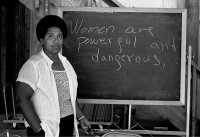audre lorde
Articles tagged with audre lorde
Tag Archive
- A House in Luanda
- African Americans
- african studies
- Afropolitanism
- América
- anti-colonial struggle
- António Pinto Ribeiro
- Artur Nunes
- autonomy
- BLM
- Bonga
- buenos aires
- caboverdiano
- Carnaval
- chinese
- colonização
- community
- cultural
- Dak'art 2016
- descolinizar museus
- Deus Dará
- development
- Dombe Grande
- eurocentrism
- european parliament
- exposição
- Faustin Linyekula
- film
- FMM
- France
- Frantz Fanon
- gente de cor
- Guinea-Bissau
- hegemony
- heritage
- Hip-Hop Tuga
- humildade
- I only rest in the storm
- immigrant
- in transit
- inclusão
- independencies
- Índios
- instalation
- intellectual extractivism
- Iwalewahaus –
- Jacinto Lemos
- Jacques Rancière
- Jean-Michel Basquiat
- Jean-Yves Loude
- Keita mori
- Kurdish people
- linguística
- Lisboa
- Literatura
- litterature
- Louise Narbo
- magazine
- maputo
- masks
- Meet
- migratory politics
- Milita
- monica de miranda
- museu da descoberta
- música popular
- nationalists
- O que temos a ver com isto? O papel político das organizações culturais
- opression
- patrimony
- Pé de Xumbo
- Pedro José-Marcellino
- poetry
- political agendas
- post-memories
- Rabbit Hole
- rabòday music
- radio
- Resem Verkron
- reverse racism
- Ricardo Farinha
- Rita GT
- Sado
- Sao Tomé e Príncipe
- Sérgio Afonso
- sexuality
- slave ship
- social conventions
- social inclusion
- stage
- Swahili
- tales of europe
- The Right to Look
- Toy Boy
- transnational
- utopia
- visual Arts
- Witchcraft
- Word
- “Sexual Misconduct in Academia”
 Audre Lorde asks, “What does it mean when the tools of a racist patriarchy are used to examine the fruits of that same patriarchy?” Lorde’s critique of hierarchies within what is then a predominantly white, middle-class, heteronormative, able-bodied second-wave feminism invites reevaluation of the chalk circles of individual identity that fix structural inequality and prevent viable liberation from taking shape. An existentialism disconnected from dynamic modes of praxis grounded in “the interdependence of mutual (nondominant) differences” fortifies oppression.
Audre Lorde asks, “What does it mean when the tools of a racist patriarchy are used to examine the fruits of that same patriarchy?” Lorde’s critique of hierarchies within what is then a predominantly white, middle-class, heteronormative, able-bodied second-wave feminism invites reevaluation of the chalk circles of individual identity that fix structural inequality and prevent viable liberation from taking shape. An existentialism disconnected from dynamic modes of praxis grounded in “the interdependence of mutual (nondominant) differences” fortifies oppression. 